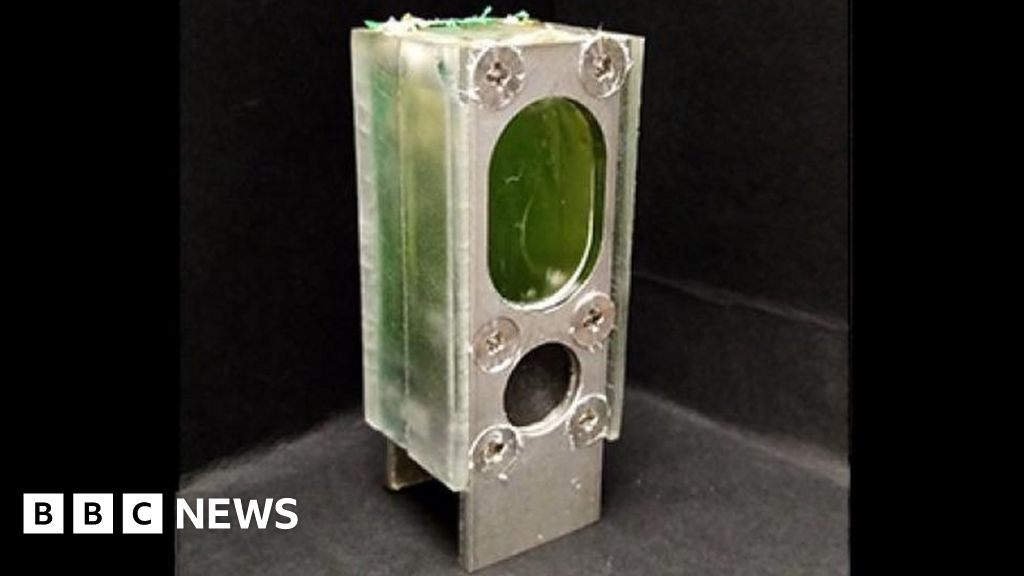
May 14, 2022
59 secs
Researchers have used algae to power a computer continuously for a year.The University of Cambridge said the system was a similar size to an AA battery and contained a non-toxic species of blue-green algae called synechocystis.The algae "naturally harvests energy from the sun through photosynthesis", the university said."This means it could easily be replicated hundreds of thousands of times to power large numbers of small devices as part of the Internet of Things," the team said.The Internet of Things is a vast and growing network of electronic devices that each use a small amount of power that collect and share real-time data via the internet, like smartwatches.The electrical current generated through photosynthesis interacts with an aluminium electrode which is used to power the microprocessor.Prof Christopher Howe, of the University of Cambridge's department of biochemistry, said: "Our photosynthetic device doesn't run down the way a battery does because it's continually using light as the energy source.".In the experiment, the device was used to power an Arm Cortex M0+, which is a microprocessor used widely in Internet of Things devices.
